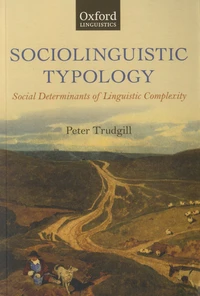Language Myths
Par : ,Formats :
Disponible dans votre compte client Decitre ou Furet du Nord dès validation de votre commande. Le format ePub protégé est :
- Compatible avec une lecture sur My Vivlio (smartphone, tablette, ordinateur)
- Compatible avec une lecture sur liseuses Vivlio
- Pour les liseuses autres que Vivlio, vous devez utiliser le logiciel Adobe Digital Edition. Non compatible avec la lecture sur les liseuses Kindle, Remarkable et Sony
- Non compatible avec un achat hors France métropolitaine
 , qui est-ce ?
, qui est-ce ?Notre partenaire de plateforme de lecture numérique où vous retrouverez l'ensemble de vos ebooks gratuitement
Pour en savoir plus sur nos ebooks, consultez notre aide en ligne ici
- Nombre de pages208
- FormatePub
- ISBN0-14-193910-9
- EAN9780141939100
- Date de parution26/11/1998
- Protection num.Adobe DRM
- Infos supplémentairesepub
- ÉditeurPENGUIN
Résumé
A unique collection of original essays by 21 of the world's leading linguists. The topics discussed focus on some of the most popular myths about language: The Media Are Ruining English; Children Can't Speak or Write Properly Anymore; America is Ruining the English Language. The tone is lively and entertaining throughout and there are cartoons from Doonesbury andThe Wizard of Id to illustrate some of the points.
The book should have a wide readership not only amongst students who want to read leading linguists writing about popular misconceptions but also amongst the large number of people who enjoy reading about language in general.
The book should have a wide readership not only amongst students who want to read leading linguists writing about popular misconceptions but also amongst the large number of people who enjoy reading about language in general.
A unique collection of original essays by 21 of the world's leading linguists. The topics discussed focus on some of the most popular myths about language: The Media Are Ruining English; Children Can't Speak or Write Properly Anymore; America is Ruining the English Language. The tone is lively and entertaining throughout and there are cartoons from Doonesbury andThe Wizard of Id to illustrate some of the points.
The book should have a wide readership not only amongst students who want to read leading linguists writing about popular misconceptions but also amongst the large number of people who enjoy reading about language in general.
The book should have a wide readership not only amongst students who want to read leading linguists writing about popular misconceptions but also amongst the large number of people who enjoy reading about language in general.





